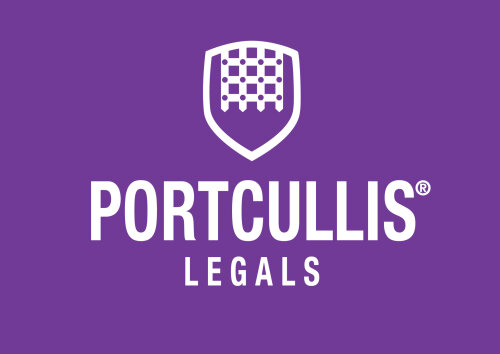Best Nursing Home Abuse Lawyers in Plymouth
Share your needs with us, get contacted by law firms.
Free. Takes 2 min.
List of the best lawyers in Plymouth, United Kingdom
About Nursing Home Abuse Law in Plymouth, United Kingdom
Nursing home abuse refers to any form of mistreatment, whether physical, emotional, financial, or sexual, endured by elderly residents in care homes. In Plymouth, as part of the wider UK, the welfare of older adults in nursing homes is protected by legislation and oversight designed to ensure that individuals receive respectful, safe, and supportive care. Despite these protections, instances of abuse or neglect can and do occur, making awareness and access to legal advice crucial for those affected.
Why You May Need a Lawyer
Legal assistance may be necessary for anyone who suspects or has evidence of nursing home abuse. Common situations where a lawyer can help include:
- Suspected or reported abuse or neglect of a loved one in a care home setting
- Concerns about unexplained injuries, poor hygiene, or sudden changes in behaviour
- Financial exploitation or irregularities in the management of a resident's finances
- Emotional or psychological abuse including intimidation, threats, or isolation
- Sexual abuse allegations or incidents
- Poor care standards leading to illness, malnutrition, or dehydration
- Failure of the care home to follow care plans, legal safeguards, or reporting protocols
- Death under suspicious or unclear circumstances
A lawyer can advise on your rights, the evidence needed, how to report abuse, and the process for seeking compensation or other remedies.
Local Laws Overview
In Plymouth, as elsewhere in England, nursing home care is governed by several key pieces of legislation and regulatory bodies:
- Care Act 2014: Establishes the legal framework for safeguarding adults at risk and sets out duties for local authorities and care providers.
- Mental Capacity Act 2005: Protects people who lack the mental capacity to make decisions about their care and ensures their best interests are prioritised.
- CQC Regulations: The Care Quality Commission (CQC) is responsible for inspecting and regulating care homes to ensure standards are met.
- Safeguarding Adult Boards: Plymouth’s local authority operates or partners with boards that oversee safeguarding processes and procedures.
These laws work in tandem to prevent abuse, provide clear processes for reporting concerns, and outline consequences for poor care or abuse. If abuse is alleged, various investigations may be launched by the care provider, local authority, and police if criminal behaviour is suspected.
Frequently Asked Questions
What constitutes nursing home abuse?
Nursing home abuse can involve physical harm, emotional mistreatment, financial exploitation, neglect, or sexual abuse by staff, other residents, or visitors in a care setting.
How can I recognise if abuse is happening?
Warning signs include unexplained injuries, changes in behaviour, withdrawal, poor hygiene, unexplained financial transactions, or sudden decline in health.
What should I do if I suspect abuse?
Report your concerns to the care home manager, local council’s safeguarding team, the Care Quality Commission, or in urgent cases, the police.
Can I make a legal claim for nursing home abuse?
Yes. If there is evidence of abuse or neglect, you may be able to claim compensation for physical, emotional, or financial harm.
How long do I have to make a claim?
You generally have three years from discovering the abuse to initiate a claim, but exceptions may apply, especially if the victim lacks mental capacity.
What evidence do I need?
Photographs of injuries, medical reports, witness statements, financial records, and recorded complaints can all support your case.
Will my loved one have to attend court?
Not always. Many cases are settled out of court, but if necessary, arrangements can be made to support vulnerable individuals who give evidence.
Is reporting abuse confidential?
Yes. Safeguarding teams handle reports confidentially and are trained to protect the identities and welfare of complainants.
What agencies investigate care home abuse?
The CQC, Plymouth City Council’s safeguarding team, and in criminal cases, the police will investigate allegations of abuse.
Can I move my relative to another care home?
Yes. If your loved one is in danger or unhappy, you can arrange a transfer, ideally after discussing with professionals or legal advisors to ensure their needs and safety are prioritised.
Additional Resources
- Care Quality Commission (CQC): Nationwide care home regulator and inspector.
- Plymouth City Council Adult Social Care Safeguarding Team: Local authority safeguarding board for adults.
- Action on Elder Abuse (Hourglass): Charity specialising in supporting victims of elder abuse.
- NHS: For medical assessment and care for victims.
- Citizens Advice Plymouth: Free, confidential assistance on legal and social issues.
Next Steps
If you suspect abuse in a nursing home in Plymouth, act promptly:
- Document your observations and gather any evidence available.
- Report your concerns to the care home manager and Plymouth’s safeguarding team.
- Contact the police if you believe a crime has been committed or if someone is in immediate danger.
- Seek medical attention for any injuries or health concerns.
- Consult with a solicitor experienced in care home abuse claims to understand your legal rights and options.
- Make use of support services and charities that offer advice and practical assistance for victims and their families.
Early intervention and expert legal guidance can help stop further abuse, secure justice, and ensure your loved one’s wellbeing in Plymouth’s care homes.
Lawzana helps you find the best lawyers and law firms in Plymouth through a curated and pre-screened list of qualified legal professionals. Our platform offers rankings and detailed profiles of attorneys and law firms, allowing you to compare based on practice areas, including Nursing Home Abuse, experience, and client feedback.
Each profile includes a description of the firm's areas of practice, client reviews, team members and partners, year of establishment, spoken languages, office locations, contact information, social media presence, and any published articles or resources. Most firms on our platform speak English and are experienced in both local and international legal matters.
Get a quote from top-rated law firms in Plymouth, United Kingdom — quickly, securely, and without unnecessary hassle.
Disclaimer:
The information provided on this page is for general informational purposes only and does not constitute legal advice. While we strive to ensure the accuracy and relevance of the content, legal information may change over time, and interpretations of the law can vary. You should always consult with a qualified legal professional for advice specific to your situation.
We disclaim all liability for actions taken or not taken based on the content of this page. If you believe any information is incorrect or outdated, please contact us, and we will review and update it where appropriate.









